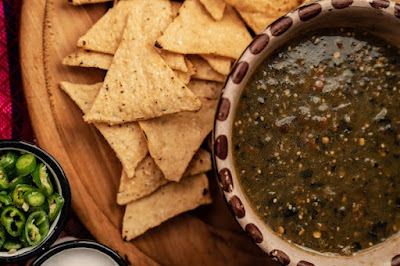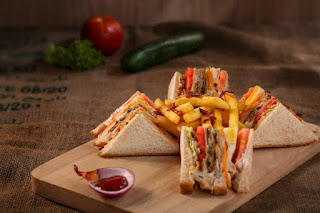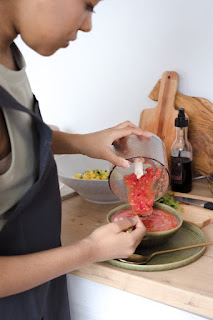Can you make food at home and sell it in Massachusetts?
Can you make food at home and sell it in Massachusetts?
BE SURE TO SUBSCRIBE TO OUR YOUTUBE CHANNEL OVER 1,000 FREE VIDEOS!
Marketing Food Online participates in various affiliate marketing programs, which means we may get paid commissions on editorially chosen products purchased through our links to retailer sites. Our Blogs are for informational purposes only seek legal advice if needed.
Can you make food at home and sell it in Massachusetts
Making and Selling Your Own Food in the Commonwealth of Massachusetts
Home bakers in Massachusetts are prohibited from selling their wares without first obtaining authorization from the state government, despite the widespread popularity of freshly baked items such as cookies and cakes.
Massachusetts
Which perishable foods have a longer shelf life and are legal to sell in Massachusetts?
There are no bounds to this.
I live in Massachusetts; is I allowed to sell baked products that have been refrigerated?
Do you allow the sale of beef in Massachusetts? You can't do that at all.
In the state of Massachusetts, it is illegal to sell foods that are either acidic or pickled.
No, I'm not allowed to sell low-acid cans in the state of Massachusetts.
No. In the state of Massachusetts, is it legal for me to sell fermented foods?
No
Cottage food is food that is cooked and sold from a home kitchen, and many states have regulations regarding this type of cuisine. People are permitted to operate small food enterprises out of their homes in accordance with the Retail Food Code, which was enacted in the state of Massachusetts in the year 2000. You are only permitted to sell goods in Massachusetts that are suitable for consumption at room temperature for an extended period of time. Can you make food at home and sell it in Massachusetts
In most cases, this entails the consumption of baked foods, dried goods, sweets, pastries, and preserves. Cottage food producers in the state of Massachusetts are prohibited from producing finished goods that must be kept either hot or cold to ensure consumer safety.
Regulations governing the purchase and serving of homemade foods in Massachusetts venues
Massachusetts has no limit on annual sales.
Where in Massachusetts may I sell food that I have cooked myself to folks who live in the area?
There are no bounds to this.
Can I sell the food that I've produced in my own kitchen at places such as supermarkets and restaurants?
Yes Online Orders
Indeed, the Postal Service
It is true that home cooks in Massachusetts have the opportunity to sell their meals in a wide variety of settings. The Commonwealth of Massachusetts refers to a company that engages in sales to individual customers as a "Retail Residential Kitchen." These types of enterprises can be discovered through farmer's markets, craft fairs, and online stores that offer package delivery services. According to the Commonwealth, a company is considered a "Wholesale Residential Kitchen" if it sells its products to individual consumers through retail establishments such as grocery stores, cafes, or restaurants. More stringent guidelines must be adhered to in the case of wholesale residential kitchens.
Can you make food at home and sell it in Massachusetts
Where to start in the Commonwealth of Massachusetts
Regulatory Burdens
Before getting started, inspections are necessary in Massachusetts. Do state laws take precedence over those of the municipality?
There is no requirement for a license, permit, or registration on your part.
Yes, the recipe needs to be validated by the lab before it can be used.
To work with food does not require any special training.
No
People who prepare food at home in Massachusetts are required to pass a home inspection before they can sell anything they've made. Because there are so many distinct rules in each of the 351 different jurisdictions, even knowing the law can be a challenging endeavor. There are some people who are unable to sell any of their homemade foods, while there are other people who are able to sell a large variety of their homemade foods.
Can you make food at home and sell it in Massachusetts
It is possible for a person to have an easy time, a difficult time, or even no chance at all of getting over the obstacle depending on where they live within the commonwealth. Some municipal health offices will not approve applications for seemingly insignificant grounds, such as the fact that the kitchen cabinets are constructed of wood rather than stainless steel. It is challenging for anyone to get started because some cities and towns do not provide any kind of home inspection service at all. Zoning regulations in certain municipalities include restrictions on the sale of food produced in private kitchens. The Department of Health in Massachusetts provides further information, but it does not maintain a list of the municipal regulations.
The regulations that apply to cottage food in Boston
The Boston Planning and Zoning Department used to be opposed to any kind of commercial use of home kitchens, despite the fact that a state statute expressly authorizes the operation of retail residential kitchens. However, in March of 2021, the city of Boston enacted a law that opened the door for Residential Retail Kitchens to operate. The modification was a victory for economic liberty, but despite the improvement, it is still not simple to launch a cottage food business in the city. Food producers who make their own products are required to pass an annual inspection conducted by the Health Division of the Boston Inspectional Services Department (ISD), adhere to the state's sanitary regulations, and obtain regulatory permission from the Boston Zoning Board of Appeal.
The truth about homemade meals from Massachusetts cottages
There are a lot of misconceptions surrounding cottage cuisine. The following is what took place:
The food that comes from a cottage is risk-free. When skeptics discuss the potential for food-borne illness, they often present hypothetical examples of what could go wrong that never actually occur in the real world.
Cottage food is another name for local food. When people in the same region engage in commerce with one another, the money tends to remain in that region.
The food that comes from a cottage is visible. When someone purchases food from a local farmer or other small-scale producer, they are aware of exactly what they are obtaining. They have the option of inquiring about the components, the origin of the food, or the degree of risk associated with consuming it.
Cottage food is responsible for the creation of jobs. The majority of people who prepare meals at home do so so that they can better provide for their families with the money they earn. Others are looking for a supplementary or additional source of income.
The power of women is increased by eating cottage food. The majority of people who create cottage food are women, and many of them live in rural locations where there are limited opportunities to earn money, according to study conducted by the IJ on the topic of cottage food.
People have more options thanks to cottage foods. There are certain stores that do not carry the items that you are looking for. This is especially important to keep in mind if you adhere to a gluten-free, vegan, halal, or kosher diet. The market is made more diverse as a result of the addition of new options provided by cottage food.
Sources of Cottage Food in the Commonwealth of Massachusetts
The Food Freedom Initiative of the Institute for Justice provides home bakers and other food entrepreneurs with access to a number of tools that can help them run their businesses more effectively. These items are as follows:
The Model Food Freedom Act developed by the Institute for Justice serves as a roadmap for activism in state capitols across the country.
In the documentary titled "Flour Power: How Cottage Food Entrepreneurs Are Using Their Home Kitchens to Become Their Own Bosses," 775 cottage food producers from 22 different states were interviewed to discuss the significance of their companies.
In this episode of Ready to Roll, we discuss nine takeaways that may be gleaned from the Institute
for Justice's victory in Wisconsin over the cottage food industry.
The documentary "The Attack on Food Freedom" examines the impact that restrictions have on people who run businesses, including farmers, chefs, artists, restaurant owners, food truck owners, and others.



Comments
Post a Comment